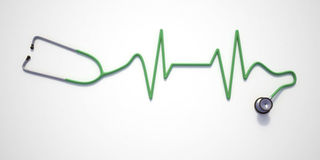Premium
Be wary of free medical consultations

FILE
Recently, I’ve come across four different health professionals (doctors included) offering free consultations, and it made me wonder about the motivation behind it. Was it altruism, or was the person in question driven by an ulterior motive? Could it perhaps be that he had a product to sell you, would you have to get a bunch of lab tests done afterwards – for a fee of course, or even surgery? Call me cynical, but I’m suspicious of free things.
For me, it’s the feeling that something doesn’t quite feel right. My interest, and any health professional’s interest for that matter, should be about making the patient well again. That should be the only goal. It shouldn’t be about how many drugs or supplements you can prescribe, or how many tests or procedures you can send them for, rather, the focus should be on how you can bring them back to 100% health most effectively.
What’s the goal?
Granted, the tools I’ve mentioned may be used to determine how ill a person really is or, to help alleviate their actual ailment. However, selling them is not the goal, and many doctors I know believe the same.
Unfortunately, there are an increasing number whose interest lies solely in maximising the amount of money they can make per patient (I know one who was more interested in fitting a patient with a gastric band* than offering advice on healthy living). I feel that this is a great disservice to the patient.
So how do you, the patient, protect yourself from this? Quite simply, by learning more about your body.
Permit me for a moment, to compare your body to a car. Imagine you hit a particularly bad pothole and take your car to a mechanic. Even though you’re no car expert, you have an inkling that you might need one of the shocks replaced. So imagine a scenario where your mechanic tells you that you need to replace all the shock absorbers, change the brake pads, and fix your radiator. Would you be more likely to go for a second opinion if he’d had a huge sign outside his garage offering a free appraisal of your car?
These are things to consider when you send your body for a free analysis. It’s not about second-guessing your doctor; rather, it’s about making a fully-informed decision. Assuming your health professional’s intentions are honourable, this shouldn’t be a problem. They will be more than happy to fully answer all your questions, taking you through the reasons for their recommendations.
It’s also acceptable for you to think about whether to proceed with a course of treatment and not feel pushed into something that you don’t quite feel is right. We all have “gut feelings” and I think we should be relying on them more. I’m not talking about being stubborn and being in denial about whether you have a particular ailment. I’m talking about you instinctively knowing that the chosen path of therapy is right for you. You just need to feel confident enough to follow it through.
* A gastric band is a device that is surgically inserted around the top of the stomach, so that the person feels fuller after eating. It is normally used in very obese people, when their weight is literally creating an increasing number of ailments.
Some practitioners are selling this “treatment” to people who could easily lose weight by following a healthier lifestyle, and this is where problems can arise. After all, many of us eat, not because we’re hungry, but because we’re celebrating or are feeling bored. Without addressing these issues, weight loss is likely to come at a price.
The writer is a clinical nutritionist and certified by the Nutritional Therapy Council in the UK. Please direct any questions about family nutrition to her on [email protected]




